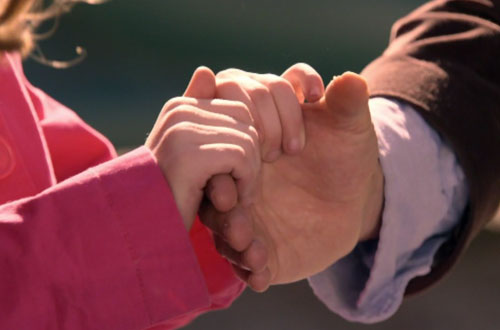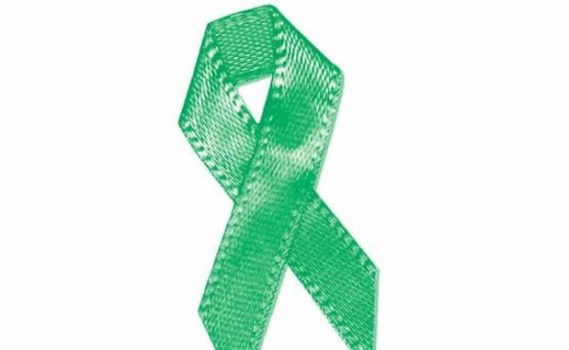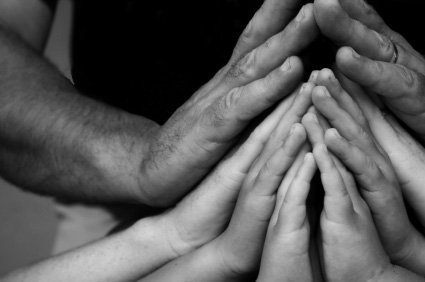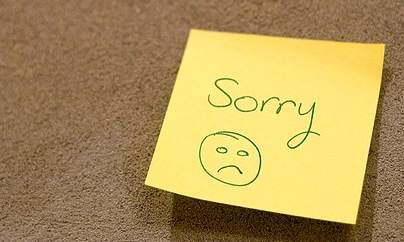Charnai Daniels, MFT Trainee
“As Marriage and Family Therapists it is our job to treat families who face challenges and adversity. One of the most complicated unit of treatment can be a blending family or step family because the therapy is focused on combining two separate families…This is why it is important for therapists to serve as a resource to assist families in this tough transitional period.”
How can premarital therapy for stepfamilies increase the probabilities of a successful re-marriage and healthy childrearing?
As Marriage and Family Therapists it is our job to treat families who face challenges and adversity. One of the most complicated unit of treatment can be a blending family or step family because the therapy is focused on combining two separate families. Bringing the families together involves a complex chain events escalating from pre-divorce tensions, through separation and reorganization of households and parent-child relationships, to re-marriage and step-family integration (Brown & Robinson, 2012). Society has stigmatized stepfamilies as less functional and problematic because of the hardships they face while trying to adapt to their new family unit (Brown & Robinson, 2012). Developing a strong family unit under these circumstances can be extremely difficult for anyone. This is why it is important for therapists to serve as a resource to assist families in this tough transitional period.
There is much research that identifies the hardships stepfamilies face to create satisfaction in their new household. Psychologists have identified four tasks these families must accomplish to achieve happiness. “The development of an effective and sound new couple relationship, the maintenance of the parent-child bonds that existed previously, the formation of new step-relationships, and finally the development of a sense of membership in the new family unit.” (Greeff & DuToit, 2009, p.115). They way these tasks can be accomplished is by effective communication between all members. Positive communication skills can be taught by the therapist and once there is trust and honesty families will be able to overcome any hardship.
Importance of Open Communication with Children
There are many factors that contribute to the high divorce rate of stepfamilies, but one element that consistently appears in research is lack of communication. Researchers from Oklahoma State University found that, aside from all the complications that effect re-marriages such as finances, religious beliefs, choosing where to live, time management issues etc, harmoniously blending a family can be the most challenging task to accomplish (Doss, Rhoades, Stanley, Markman, & Johnson, 2009). Findings from this research have shown that divorced individuals with children from the first marriage are at a higher risk of divorce in their second marriage, which heightens the importance of maintaining stable and low-conflict second marriages (Doss et al., 2009). As a therapist treating a blended family it is important to understand how stressful such factors as listed above can be for clients. Therapists can be used as resources for the blending family to increase their chances of a successful re-marriage. According to Doss et al. (2009), therapists treating blended families recommend them to open lines of communication between the new couple, the biological parents, and most importantly with the children.
Many couples leaning toward making the decision to remarry do make the conclusion to enroll in an educational program or therapy to strengthen their relationship, but neglect to include their children. Clinical Psychologist Dr. Claire Cartwright (2010) explained, re-marriage can be difficult for children to handle and no preparation or warning for the blended family can be devastating. She concluded that adding a sibling or stepparent to the family can produce a host of feelings for the child(ren). Therefore, it is imperative for the therapist to encourage the biological parent(s) to address minor(s)’ emotions before a re-marriage. Dr. Cartwright (2010) also points out that it is important for adults to understand that children experience the courtship period of the adults. Thus, how parents prepare children for the transition correlates with positive results of stepfamily living. Establishing lines of communication between children involved increases the chances of a family bonding because stepparent and child relationships can began to develop early. If children are uncomfortable in their home, this can easily cause strain on the new marriage and also put pressure on both biological parents.
According to Step Family Education: A Case Study, divorce rates in America are at an all time high, whether it is a first marriage or a re-marriage (Skogrand, 2011). With this knowledge, pursuing some form of premarital therapy to help manage the anxiety of blending families confront can be very helpful. When people remarry, it is harder to address situations that raise stress levels and the family connection decreases. Researchers found that the, “Potential benefit of stepfamily education is that it brings family members together to spend time learning how to make their family stronger… As the entire family attends, both parents and children can take the skills they have learned in the course and use them in their homes.” (Skogrand, 2011, p.62). When a family has strong a connection individuals feel they have a comfortable space in the home and even the most complicated issues can be worked through together. All families will have to deal with their fair share of dilemmas, but if everyone overcomes together it makes the family stronger. This is why it is important to include children in the conversation when two adults are planning to start a blended family.
When a parent considers remarrying his or her desire for companionship and romance competes with the child’s desire for attention and affection. Some parents are more attuned with their own needs and assume that the child will adapt and accommodate their needs if the parent is happy (Anderson and Greene, 2011). Parents that have this type of attitude may be setting themselves up for a harmful transition with their children. Anderson and Greene (2011) reported, “Unsuccessful negotiation may give rise to problematic interactions with the new romantic partner that increase the likelihood of further relationship instability and dissolution” (p.741), which can cause interruptions between the new partner and involved children. Therapists can inform the family of the benefits of building a strong triadic system and including the children in the courtship to enhance the family unit on a larger level (Anderson and Greene, 2011). In this instance children will be able to develop closer ties with the stepparent prior to the marriage.
One might assume people who are divorced are more conscious about the risk of a remarriage failing and having the children experience an additional family disruption (Cartwright, 2010). Cartwright (2010) discovered the opposite has been occurring because some parents do not know how to communicate with their children about their partners. Cartwright (2010) explained lack of planning is, “the use of a behavior avoidant strategy to cope with potential uncertainty… stepfamily couples avoid sensitive topics more than first-marriage couples and are more likely to withdraw from discussion of difficult issues. “ (p.239). Therapists can assist the parents in addressing the difficult topics such as gaining a new parent, possibly moving to a new home or school, adding a step-sibling to the family etc., to the children in ways they can understand. Avoiding introducing a new partner and or consulting with the children before confirming the decision to remarry can be hurtful to children and cause resentment (Cartwright, 2010).
Marital conflict and distress can be directly related to a child’s ability to function and develop accordingly. Premarital therapy and education on how to increase communication skills with children during the process of family planning can be essential for the family unification process. Unprepared children have the potential to suffer from a decreased immune system, psychological hardships, social adversities, and school difficulties when they abruptly have to adjust to a new parental figure (Doss et al., 2009). Parents can include the children in the therapy process to monitor their adjustment during the dating process. If the child(ren) can positively cope with the dating process, it makes the official blending of the family smoother. A child focused relationship between the adults helps strengthen the entire family unit and builds self-esteem, attachment and security in the minors (Anderson and Greene, 2011).
Financial stressors relating to creating a stepfamily
Department of Child and Family Development, University of Georgia recommends when a couple decides to remarry and one or both partners have a child, finance is an essential topic that needs to be discussed (Kim, Gale, Goetz, & Bermúdez, 2011). Marrying someone with young children will directly or indirectly affect the new spouse’s income whether the divorced biological parent is in the picture or not. Research shows that economic need on average impacts mothers at a greater loss than fathers during a divorce (Cartwright, 2010), which can be very stressful for mothers as the primary care giver for the children. If the remarrying couple chooses to attend premarital therapy, these issues can be brought up on how to decrease financial stress. Couples will learn it is best for the financial plan to be drawn up by the legal or court system to avoid potential dilemmas posed by miscommunication or simply neglectfulness (Kim et al., 2011).
When finances are low, a marriage can become very tense because parents are worried about the possibility of not being able to provide for their children. Built up tension causes the couple to become less attracted to one another and eventually it may create a gap in between two causing an unsupportive relationship (Kim et al., 2011). The financial pressure can cause them to react in anger, use derogatory words towards each other, raise voices at one another, physically abuse spouses, engage in drug abuse etc., which are all unhealthy coping skills (Kim et al., 2011). As hard as parents try to hide this information from children, eventually they will witness this negative behavior. A spouse might begin to blame the other for the financial problems causing children to go without and the conflict perpetuates until the couple grows apart. Not only does financial stress have the potential to ruin a marriage, but the burden can spill over into the couples’ social life amongst family, friends, physical welfare and self-care, and can lead to emotional distress (Vespa, 2012).
Therapists can assist in managing the couples’ anxiety caused by complex finances. Therapists should not get involved in the financial affairs of the couple because it is out of therapists’ scope practice (Kim et al., 2011). Kim et al (2011), suggests that the role of the therapist can be to help clients identify comfortable financial roles for both the biological parent and stepparent. The therapist can explain the correlation between a successful marriage and well-managed finances. “Couple and family therapists are not trained to address clients’ specific financial difficulties, which can lead to missed opportunities for positive, relational change. Financial planners are not trained to attend to emotional, relational difficulties and dysfunctional communication patterns, which, in turn, can limit their success with clients.” (Kim et al. 2011, p.230). If it is beneficial for the client, therapists can consider collaborating with the financial advisor assisting the couple being treated to gain a better understanding of the families’ stressors. Ultimately, couples should consider how money will be managed, divided and spent themselves.
At the same time, therapist should normalize the fact that it can be hard for individuals to make decisions about sharing money, if they have been in control of their own finances for a long time. Paula Kirby (2011) explains another aspect for therapist to consider is there might be hesitation, mistrust, or fear in the notion of others managing their money due to a bad experience in a previous relationship. She mentions that the blending process becomes more difficult as the parents and children age because opinions become more ingrained (Kirby, 2011). Therapist can guide the couples through the conflict of ‘your money vs. my money’ to prevent hostility and or doubt in the relationship because of finances.
According to Kirby (2011) there are a number of older adults who have adult children deciding to remarry, due to the increase of social Internet connections and social networking. Kirby (2011)explained, when older adults decided to remarry, they sometimes have to consider how assets, retirement accounts, property, division of life insurance policies and other inheritances will be divided amongst biological and stepchildren. The issue of children from previous marriages being the sole inheritor in a written will might have to be divided a second time to accommodate all children (Kirby, 2011). Therapists cannot assume that adult children do not have emotional pain when their parents decide to remarry and allocate property to stepfamily. Studies have shown that some treasured personal items from a previous marriage being brought into the new household bring up the feelings of a loss of family identity in adults (Kirby, 2011). Laying out the details of economics and property can be very emotional process for families blending due to many complexities.
According to Jonathan Vespa (2012), these problematic issues have produced more fear amongst older women when considering remarrying. They sometimes look at remarriage as a sacrifice of independence and freedom. The women feel that the transition from cohabiters to a relationship that is legally and religiously defined will trap them into traditional marital roles and they will have to give up control of their finances to their husband (Vespa, 2012). Therapists can help alleviate the fear of losing financial independence and help the couple meet at a comfortable medium. The irrational belief that a wife must give her finances to her husband can be challenged in the realms therapy. Vespa says, “Understanding the kinds of intimate relationships older adults experience is important because relationships are vital to well-being.” (Vespa 2012, p.1104). A primary objective in treating an older adult is to maintain their safety and security.
In these complicated situations, it is a good idea for therapist to refer clients to financial planners, lawyers, and experts who specialize in these matters and can educate the couple on how to juggle money (Kim et al., 2011). Focusing on the content can become extremely messy not only for the therapist, but especially for the couple being treated. Guiding clients toward additional help outside of therapy can decrease anxieties around mistrust, suspicion, insecurities and ultimately being left without money to survive (Vespa, 2012). This sets boundaries within the therapy realms and ensures that the work is not going beyond the scope of practice. It also protects the client from being swindled by the spouse and losing their financial stability if the therapist is aware of elder abuse laws. A treating therapist should be aware of the laws in their state regarding financial abuse in elder adults. The National Center on Elder Abuse found that the average age of a victim of elder abuse in financial exploitation is 77.9 and the primary abusers were spouse and children (Kirby, 2011, p.24).
Resilience of Stepfamilies
The high stress levels and complexity of joining two families has been greatly demonstrated through much research. At the Nelson Mandela University, South Africa the Department of Psychology developed a Resilience Model of Family Stress and offered the information to blending families. Researchers were able to categorize families into four different patterns of healthy functioning, starting with Regenerative, Resilient, Rhythmic and Traditionalistic (Brown & Robinson, 2012). Each category signified how families were able to adapt in crisis or unfavorable situations according to their own family schema, which they created to fit their personal values and beliefs.
According to Dr. Brown and Robinson (2012), “Regenerative families tend to be high on family hardiness and family coherence and cope with family problems by cultivating trust, respect and maintaining an emotional calm and stability.” (p.115). Blending families that fit in this category use hardiness to navigate through stressful situations and improve their coping skills to deal with life outside the family. Therapists assisting to build hardiness within the family unit increase the sense of active control each member’s life outcome? Hardiness becomes an internal strength that is a huge factor in resilience because the family feels committed to working through challenges together (Greeff & Du Toit, 2009). Once hardiness is a quality instilled within a person, s/he can use the characteristic in many faucets of their life as challenges occur inside and outside of the family unit.
The second positive category is called, resilient meaning the family’s major strength is their ability to change, high levels of bonding and their ability to flexible (Brown & Robinson, 2012). The two dimensions to resiliency are risk factors and protective factors. Risk factors are adverse environmental conditions that increase vulnerability and protective factors buffer and protect against those vulnerabilities (Greeff & Du Toit, 2009). Therapists can collaborate with families to build resilience by, “(1) encouraging family belief systems, (2) a community environment that increases hope and possibility, (3) collaboration of mutual support, (4) offering a perspective that adversity is to expected as a normal part of life, and (5) convictions’ regarding families self-worth and potential.” (Greeff & Du Toit, 2009, p.124). Preventative interventions can be at the forefront of therapy because adversity and stress are going to be present during the families’ transitioning process.
The third family category is known as Rhythmic because the families involve themselves in routines and predictable activities within the family unit to routinize the family into a predictable pattern of living (Brown & Robinson, 2012). The Children’s Institute and the University of Rochester found that, “A child can perform at a more advanced level with consistent structure and support provided by a caring, competent adult. The key is to foster multiple resources and reduce risks by enhancing supportive resources across systems that affect children. Such a cumulative protection approach is intended to provide a foundation on which children can effectively navigate challenges throughout childhood and adolescence.” (Pedro-Carroll, 2001, p.996). Consistency can be used as an intervention to protect the family from the stress that chaos can cause, especially for children and adolescents. One example can be developing a schedule for the child(ren) to stay with the non-custodial parent and sticking to it giving the child(ren) a sense of stability.
Psychologists have noticed, “Interventions targeted towards separating parents that teach effective parenting practices and strengthen parent-child relationships hold much promise for protecting children from stress and fostering resilience.” (Pedro-Carroll, 2001, p.998). When blending a new family it is important to have the children remain connected to both biological parents. In the cases that the father becomes the non-residential parent, studies have shown that if he provides consistent emotional support, praise and discipline misbehavior, children have a greater chance to achieve academically (Pedro-Carroll, 2001). This means that the number of contacts spent with the child and non-residential parent is less important and what matters is the emotional bond fostered by authoritative parenting.
The final category of successful blending families is the Traditionalistic; they place an emphasis on family celebrations and traditions that can be passed down through generations (Brown & Robinson, 2012). Spirituality, beliefs, practices and community programs were factors in their families healthy functioning. Finding support through traditions allows the family to adapt together to the new way of living by discovering the following skills. “(1) The ability to have a sense of control over outcomes in life, (2) activities and routines that help the family to spend time together, (3) family communication that is affirming, conveying care and support, (4) support from family and friends, and (5) internal and external handling of problems by redefining stressful events and acquiring and accepting social support” (Greeff & Du Toit, 2009, p.121). A family therapist can be used a resource for the family to rely on consistently for social support. In the therapy realm, families can merge significant traditions and create new memories and traditions that can be passed down to future generations.
As social and personal networks can be of great benefit to blending families, research has shown that children and adolescents with positive temperament are more likely to have a more warm relationship with both biological and step-parents, which helps the families’ transition easier (Ruschena, Prior, Sanson, & Smart, 2005). Temperament in regards to emotional reactivity and the ability to self-regulate behavior is a component of how children and adolescents will cope with life’s stressors. The Department of Psychology at the University of Melbourne Australia documents, “Those with poorer behavioural outcomes, the most prominent contributing factors were dimensions of temperament and parent-child relationship quality, rather than structural determinants related to the transition itself. (Ruschena et al., 2005, p.361). Resiliency and healthy transition depends on the family’s willingness to work collectively toward success. If there is one person not willing to work through stress provoking events it makes it harder for the other members to cope positively.
Therapists can focus on the members’ attitudes toward the original family break-up and help make members connect with the new family members. Psychologists believe, “Step-relationships are of great importance if stepfamilies want to be successful. When families believe they can turn to one another and when they take an active interest in what is important to each other, it becomes a ‘holding environment’ standing against adversity.” (Greeff &Du Toit, 2009, p. 123). Establishing a support network within the family unit is an intervention that can serve both the adults and children. Parents can be taught skills on how to resolve conflicts, manage anger, and disengage themselves from heated verbal exchanges and interactions between members by modeling appropriate communication (Pedro-Carroll, 2001). This can be used as a tool of protection for the well-being of all members to avoid chronic conflict and its toxic long term effects.
In therapy, families can be informed about the correlation of family resilience to parental self-care. The Children’s Institute and the University of Rochester recommends, “Educational outreach and preventative interventions should be proactive in emphasizing to parents the importance of taking care of themselves physically and emotionally so they can best care for their children. Provide parents with information about healthy stress management, warning signs that professional help may be needed, and additional supportive resources to use.” (Pedro-Carroll, 2001, p.997). Therapists can emphasize the importance of self-care to parents in the process of blending their families. The complexities of parenthood and marriage can easily become overwhelming and basic self-care is one the first to be neglected. If parents are not healthy enough to take care of themselves, it becomes harder to rear healthy children.
Psychologist Emory Cowen has strong beliefs in prevention concepts of psychological wellness versus resulting to post repair models. This pre-therapeutic approach has the goal to promote wellness and develop strategies for blending families to cope with preliminary stressors. Therapy can involve the following strategies, “(a) Fortifying and building social-emotional competence, (b) fostering skills that promote coping and resilience, (c) facilitating proactive social system modifications, and (d) promoting opportunities for empowerment.” (Pedro-Carroll, 2001, p.995). Utilizing these tools from the beginning can help decrease stress levels for all members and allows the individuals to cope holistically. Treatment can be geared toward group satisfaction and the entire family can openly share their opinions on how they desire the family to function. Each member having a voice gives a sense of empowerment to facilitate the success and healthiness of the family unit.
Implications
In conclusion, when couples contemplate a remarriage therapy can be a great resource to utilize when blending a family. Family dynamics, traditions, and cultures vary amongst each relationship, but two constants are the importance of communication and money management (Kim et al., 2011). Involving the children each step of they way can be difficult for parents to do, but therapist can aide clients in the process. Allowing another person into your finances can be a very difficult experience, so if this fear is normalized in therapy, trust can begin to develop. Therapists can offer coping and communication skills to decrease anxiety around these two major issues. Depending on how a previous marriage ended these factors can heavily way on the new partnership. Research shows that, “former partners likely have a psychological presence in the stepfamily household, which can affect couple dynamics…Understanding how a first marriage influences a remarriage is a complex process.” (Brimhall, Wampler, & Kimball, 2008 p.374). Therapists can steer couples in a clear direction to establish boundaries and limits with one another that are beneficial to the entire family.
Regardless of the hardships and adversities that stepfamilies face, there is potential for successful and healthy functioning. Therapists treating blended families can praise members for seeking help during early transitional periods and frame therapy as strength rather that a sign of weakness (Pedro-Carroll, 2001). The goal of therapy should be to create a healthy environment for children to meet their developmental milestones. Marriage and Family Therapists should encourage blending families to participate in therapy as soon as possible because research continuously shows how complicated the process can be. Preventative interventions such as honest communication, tools for parental guidance, and so on can have long term effects. Lastly, “Creating an environment that protect children from severe stress and providing competence-building resources for children over the course of their development should be priorities for future research and practice.” (Pedro-Carroll, 2001, p.1000). Most parents make choices with their children at the forefront of the decision. Creating new partnership is not only done to satisfy their own needs, but the child(ren)’s well- being is considered. Working out the kinks in therapy is a positive resource that clearly is beneficial to the entire family unit.
Reference List
Image Source
Anderson, E. R., & Greene, S. M. (2011). “My Child and I Are a Package Deal”: Balancing Adult and Child Concerns in Repartnering After Divorce. Journal Of Family Psychology, 25(5), 741-750. doi:10.1037/a0024620
Brimhall, A., Wampler, K., & Kimball, T. (2008). Learning From the Past, Altering the Future: A Tentative Theory of the Effect of Past Relationships on Couples Who Remarry. Family Process, 47(3), 373-387. doi:10.1111/j.1545-5300.2008.00259.x
Brown, O., & Robinson, J. (2012). Resilience in remarried families. South African Journal Of Psychology, 42(1), 114-126.
Cartwright, C. (2010). Preparing to repartner and live in a stepfamily: An exploratory investigation. Journal Of Family Studies, 16(3), 237-250. DOI: 16: 237–250.
Doss, B. D., Rhoades, G. K., Stanley, S. M., Markman, H. J., & Johnson, C. A. (2009). Differential Use of Premarital Education in First and Second Marriages. Journal Of Family Psychology, 23(2), 268-273.
Greeff, A. P., & Du Toit, C. (2009). Resilience in Remarried Families. American Journal Of Family Therapy, 37(2), 114-126. doi:10.1080/01926180802151919
Kim, J., Gale, J., Goetz, J., & Bermúdez, J. J. (2011). Relational Financial Therapy: An Innovative and Collaborative Treatment Approach. Contemporary Family Therapy: An International Journal, 33(3), 229-241. doi:10.1007/s10591-011-9145-7
Kirby, P. G. (2011). Blended Families in the Over-50 Crowd. American Journal Of Family Law, 25(2), 20-25.
Pedro-Carroll, J. (2001). The promotion of wellness in children and families: Challenges and opportunities. American Psychologist, 56(11), 993-1004. doi:10.1037/0003-066X.56.11.993
Ruschena, E., Prior, M., Sanson, A., & Smart, D. (2005). A longitudinal study of adolescent adjustment following family transitions. Journal Of Child Psychology And Psychiatry, 46(4), 353-363. doi:10.1111/j.1469-7610.2004.00369.x
Skogrand, L. (2011). Stepfamily education: A case study. Contemporary Family Therapy: An International Journal, 33(1), 61-70. DOI: 10.1007/s10591-011-9141-y
Vespa, J. (2012). Union Formation in Later Life: Economic Determinants of Cohabitation and Remarriage Among Older Adults. Demography, 49(3), 1103-1125. doi:10.1007/s13524-012-0102-3
Feel free to leave your comments or questions here on our blog or contact us directly for more details. For more information about blended families, contact Charnai Daniels at charnai@westvalleycounseling.org.
For more information or to speak to one of our staff, please contact us at (818) 758-9450 or email us at info@westvalleycounseling.org
West Valley Counseling Center is located at 19634 Ventura Blvd. Suite 212 Tarzana, CA 91356









